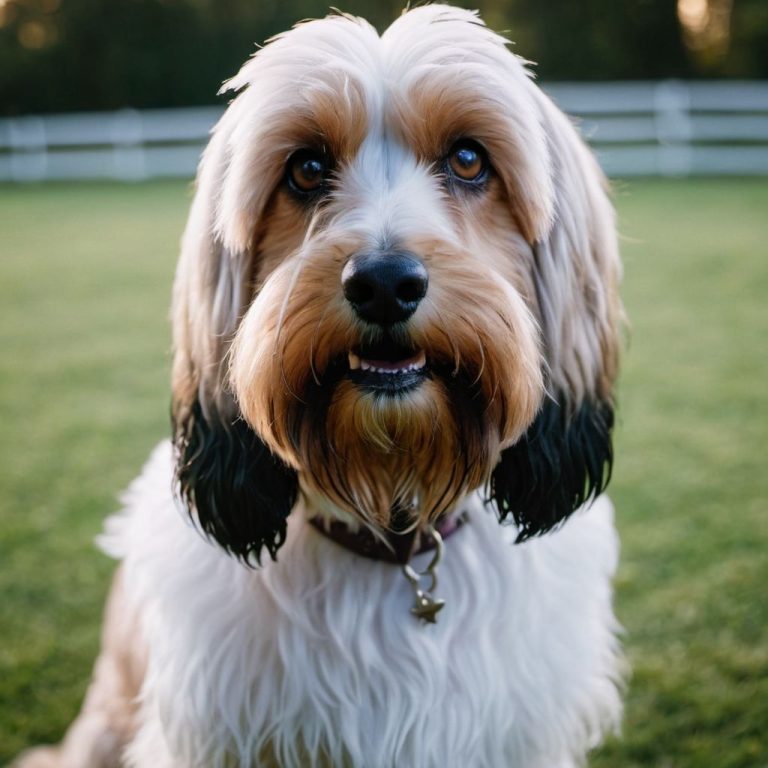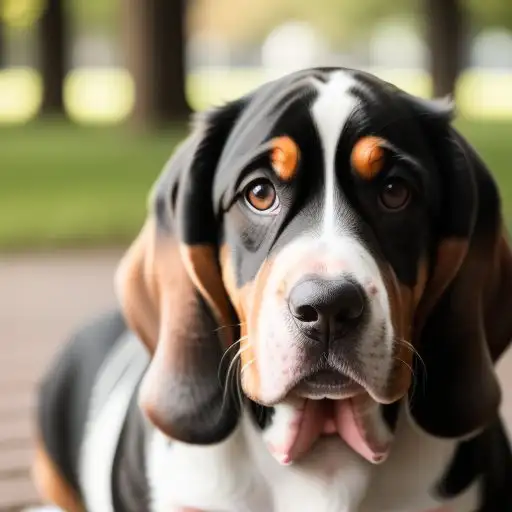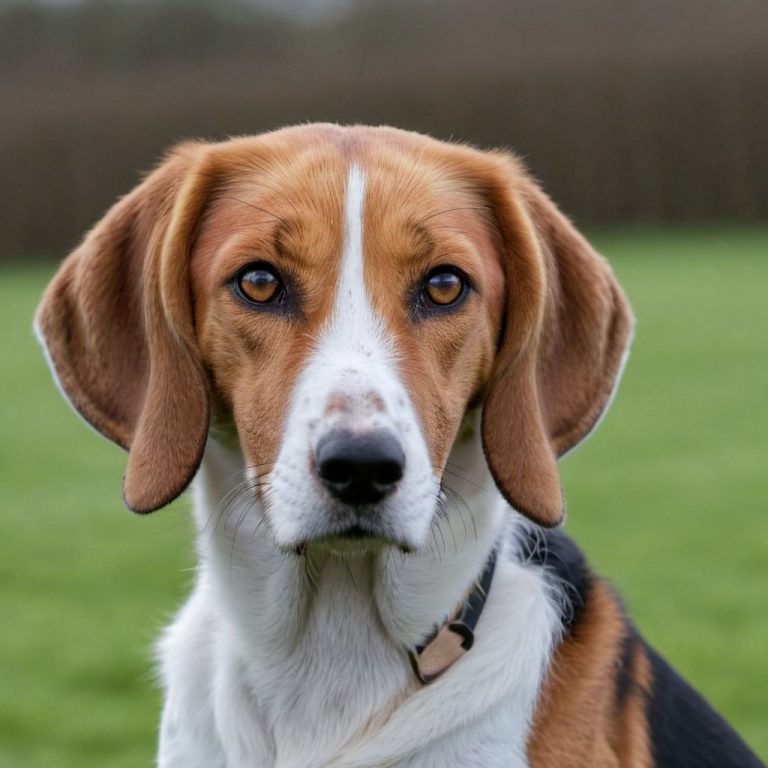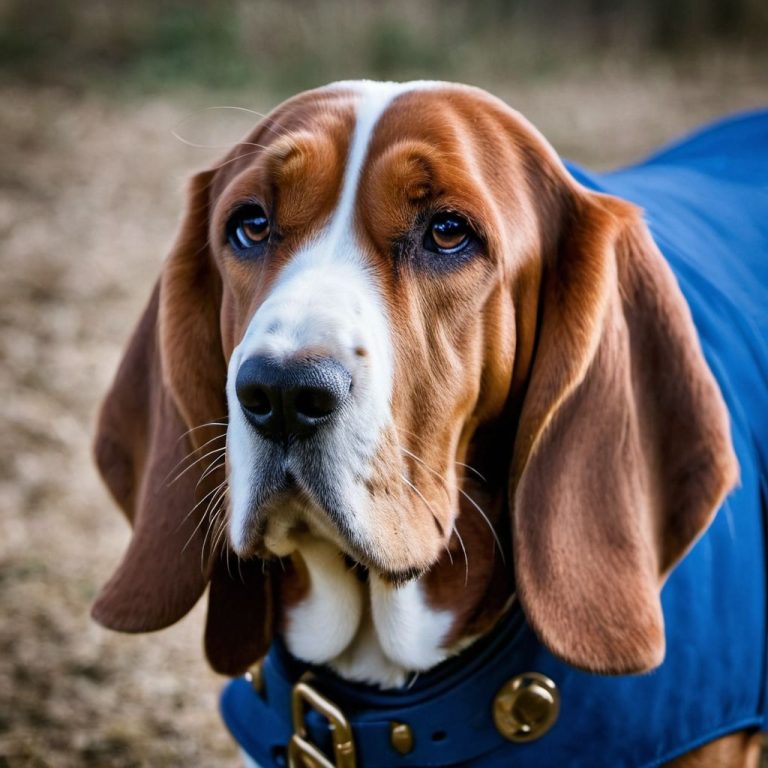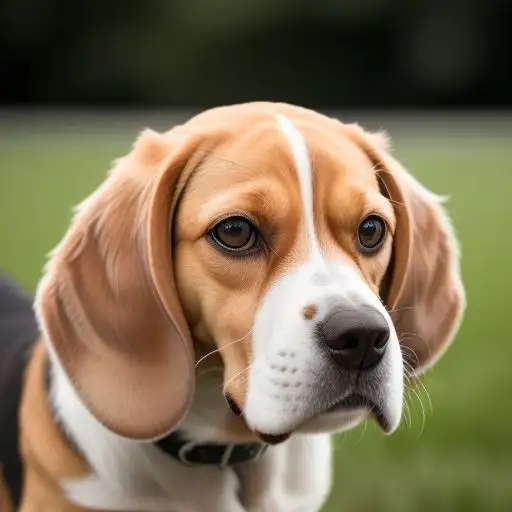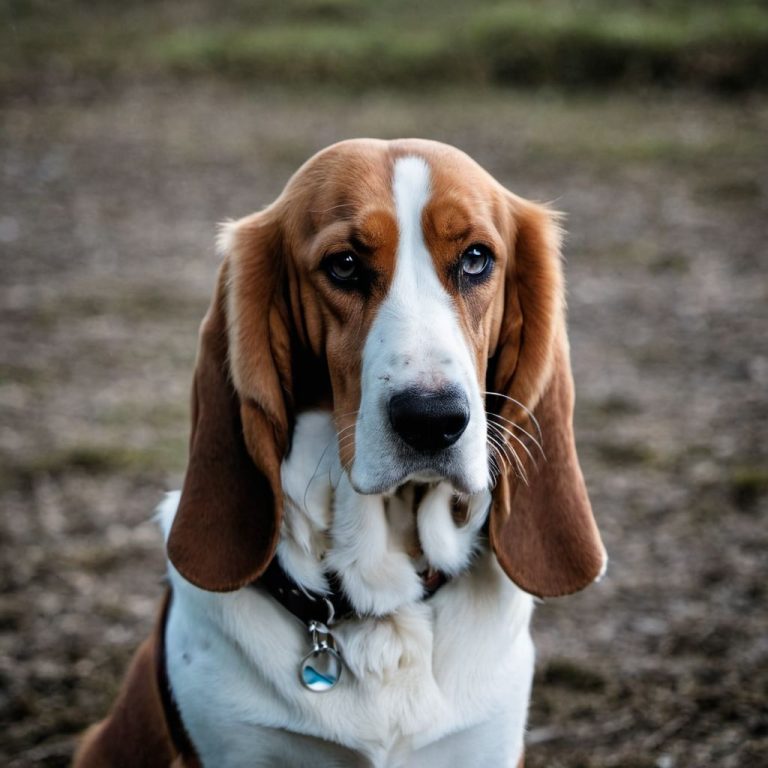BAVARIAN HOUND: Exquisite Breed
Uncover the rich history and impressive lineage of the Bavarian Hound, a breed that traces its roots to meticulous German breeding practices aimed at producing top-tier hunting companions. Beyond its utilitarian skills, this breed is recognized for its friendly disposition and strong bond with its human family.

The Bavarian Hound, known for its distinctive appearance and exceptional hunting abilities, is a medium to large-sized breed originating from Germany. With its striking red coat, black saddle, and unique facial markings, this hound is not only a skilled tracker but also a loyal and friendly companion.
Renowned for its versatility in various hunting terrains, the Bavarian Hound excels in scent detection and is often utilized for tracking game such as boar and deer. Discover more about this intelligent and adaptable breed, perfect for active families and hunting enthusiasts alike.
Learn about the Bavarian Hound’s exercise needs, grooming requirements, and training preferences to ensure a harmonious relationship with this remarkable canine. Explore why this breed continues to be a favorite among outdoorsy individuals seeking a devoted and capable partner for both hunting pursuits and family life.
History
The Bavarian Hound, also known as the Bavarian Mountain Hound, has a history deeply intertwined with German hunting traditions. This breed originated in the 19th century through careful breeding programs designed to create a versatile and skilled hunting dog, particularly suited for the mountainous terrains of Bavaria.
The development of the Bavarian Hound can be traced back to the selective breeding of Hanoverian Schweisshunds (blood tracking dogs) and other local scenthounds. The goal was to produce a dog with a keen sense of smell, stamina, and agility, making it well-suited for tracking and hunting game such as boar, deer, and other large mammals.
Over time, breeders focused on refining the characteristics of the Bavarian Hound, emphasizing not only its hunting prowess but also its temperament and adaptability. The breed’s distinctive appearance, including the red coat with a black saddle and facial markings, became standardized as a hallmark of the Bavarian Hound.
The breed gained official recognition by the German Kennel Club (VDH) and the Fédération Cynologique Internationale (FCI) in the early 20th century. Today, the Bavarian Hound is not only appreciated for its hunting abilities but also valued as a loyal and friendly companion. It has found enthusiasts beyond Germany, with its unique combination of skills and temperament making it a sought-after breed for those interested in hunting, outdoor activities, and family life.
Personality
The Bavarian Hound is known for having a well-balanced and amiable personality, making it a great companion for both hunting enthusiasts and families. Here are some key traits that define the personality of the Bavarian Hound:
Bavarian Hounds are known for forming strong bonds with their human families. They are loyal and devoted, often showing a deep affection for their owners. This breed is highly intelligent and trainable. They are quick learners and can excel in various activities, including obedience training and agility exercises.
As a hunting breed, Bavarian Hounds are naturally energetic and require regular exercise to keep them happy and healthy. They thrive in environments where they can engage in physical activities and enjoy the outdoors. Typically, Bavarian Hounds are good with children, especially if they are socialized from a young age. Their friendly and patient nature makes them suitable for families with kids.
These dogs have a strong sense of smell and are naturally alert, making them excellent watchdogs. While they are not aggressive, they may exhibit protective instincts, making them reliable guardians for their families. Bavarian Hounds tend to be social dogs that enjoy the company of both humans and other dogs. Proper socialization during puppyhood is important to ensure they develop into well-mannered and friendly adults.
While they are trainable, Bavarian Hounds can also be independent thinkers. This trait may require consistent and patient training methods to establish a strong bond of communication between the dog and its owner.

Physical Characteristics
Height
- Male 19-20 inches
- Female 16-18 inches
Weight
- Male 55-66 pounds
- Female 44-55 pounds
Coat
He has a short, dense coat that is red with a distinctive black saddle and facial markings.
Color
The common colors are:
- Red coat
- Black saddle
- Facial markings
Eyes
This hunting dog has dark brown eyes that convey intelligence and alertness.
Ears
This dog is characterized by long, droopy ears that hang close to the head.
Tail
The tail is medium in length, set high, and carried sabre-like, often with a slight curve.
Life Span
The average life span is around 10-12 years.
Temperament
The Bavarian Hound is known for its balanced and amiable temperament. Here are key traits that characterize the temperament of the Bavarian Hound:
Bavarian Hounds form strong bonds with their families and are known for their loyalty and devotion. This breed is highly intelligent, making them trainable and responsive to commands.
With a history as a hunting breed, Bavarian Hounds are naturally energetic and require regular exercise and mental stimulation. Typically good with children and other pets, Bavarian Hounds have a friendly and sociable nature.
With a keen sense of smell, Bavarian Hounds are alert and make excellent watchdogs. They may exhibit protective instincts. While trainable, Bavarian Hounds can have independent tendencies, requiring consistent training and positive reinforcement.
These dogs generally enjoy the company of both humans and other dogs. Proper socialization is important during puppyhood. The Bavarian Hound can adapt to various living environments, although they thrive in settings where they can engage in outdoor activities.
Known for their bravery in hunting, Bavarian Hounds exhibit courage and determination in their pursuits. Beyond their working abilities, Bavarian Hounds often show affection and enjoy being close to their human companions.
It’s important to note that individual dogs may vary, and early socialization and consistent, positive training are crucial for shaping a well-behaved and well-adjusted Bavarian Hound. Providing them with the mental and physical stimulation they need is key to a happy and contented temperament.
Grooming
The Bavarian Hound has a short and dense coat that is relatively low-maintenance, but some grooming practices can help keep the dog healthy and comfortable. Here are grooming tips for the Bavarian Hound:
Regular brushing helps remove loose hair, dirt, and prevents matting. A weekly brushing session with a slicker brush or grooming mitt is usually sufficient. Bathing is only necessary when the dog gets dirty or starts to develop an odor. Use a mild dog shampoo to avoid stripping the natural oils from the coat.
Check the ears regularly for signs of wax buildup, redness, or infection. Clean the ears with a veterinarian-approved ear cleaning solution as needed. Keep the nails trimmed to a comfortable length. Regular nail trimming is essential to prevent discomfort and potential issues with gait.
Dental hygiene is crucial for overall health. Brush the dog’s teeth regularly, and provide dental chews or toys to help reduce plaque and tartar. Regularly inspect the eyes for any signs of redness, discharge, or other abnormalities. Wipe away any debris with a damp, clean cloth if necessary.
Examine the skin for signs of irritation, rashes, or parasites. Address any concerns with your veterinarian. During shedding seasons, more frequent brushing may be necessary to manage loose hair. Additionally, consider using a deshedding tool to reduce shedding.
Training
Training is an important aspect of caring for a Bavarian Hound, given their intelligence and energetic nature. Here are some key training tips:
Begin training and socialization as early as possible. Early exposure to various people, environments, and situations helps in shaping a well-adjusted adult dog. Use positive reinforcement techniques such as treats, praise, and play to reward good behavior. This breed responds well to positive reinforcement and is motivated to please its owner.
Be consistent in your commands and expectations. Consistency helps the dog understand what is expected of them and reinforces good behavior. Expose your Bavarian Hound to different people, animals, and environments to ensure they are comfortable and well-behaved in various situations.
Basic obedience commands such as sit, stay, come, and down are essential. This not only enhances control but also strengthens the bond between the owner and the dog. Given their energetic nature, Bavarian Hounds need regular exercise and mental stimulation. Engage in activities such as walking, jogging, hiking, or interactive play sessions.
Recognize and channel their natural hunting instincts. Activities like scent games or tracking exercises can provide mental stimulation and satisfy their natural instincts. Be patient during the training process. Bavarian Hounds can be independent thinkers, so a patient and positive approach is more effective than forceful methods.
Harsh training methods can lead to fear or anxiety. Always approach for positive reinforcement and reward-based training to build a trusting relationship. Consider enrolling your Bavarian Hound in obedience classes or seeking the guidance of a professional trainer, especially if you’re a first-time dog owner or if you encounter specific training challenges.

Exercise
Bavarian Hounds are an active and energetic breed with a strong hunting background, so they require regular exercise to stay happy and healthy. Here are some exercise guidelines for a Bavarian Hound:
Provide daily walks to meet their exercise needs. Aim for at least 30 to 60 minutes of brisk walking or more, depending on the dog’s age and health. Bavarian Hounds enjoy running and jogging. Off-leash activities in a secure and safe area, such as a fenced yard or a designated dog park, can allow them to stretch their legs and expend energy.
Take them on hiking trips. Bavarian Hounds are well-suited for outdoor adventures and will enjoy the physical and mental stimulation provided by hiking trails. Engage in interactive play sessions, such as fetch or playing with toys. This helps channel their energy and provides mental stimulation.
Incorporate agility exercises into their routine. Setting up an agility course or participating in agility classes can be both physically and mentally stimulating for the dog. Tap into their natural hunting instincts by engaging in scent work activities. Hide treats or toys for them to find, stimulating their sense of smell and providing a mental challenge.
If your Bavarian Hound enjoys water, swimming is an excellent low-impact exercise that provides a full-body workout. Consider participating in dog sports such as obedience trials, tracking, or even competitive scent work. These activities can be both physically demanding and mentally engaging.
If your Bavarian Hound is social and enjoys the company of other dogs, supervised playdates or trips to a dog park can provide additional exercise and socialization. Establish a consistent exercise routine. Regular, daily exercise is key to preventing boredom and potential behavior issues.
Nutrition
Proper nutrition is crucial for the health and well-being of a Bavarian Hound. Here are some general guidelines for feeding and nutrition:
Choose a high-quality commercial dog food that is appropriate for your Bavarian Hound’s age, size, and activity level. Look for formulations that meet the nutritional standards set by regulatory bodies. Ensure that the dog food contains a moderate to high level of quality animal protein. Protein is essential for muscle development and overall health.
A moderate amount of healthy fats is important for providing energy. Look for sources of omega-3 and omega-6 fatty acids to support skin and coat health. Carbohydrates are a source of energy. Whole grains, vegetables, and fruits can provide essential carbohydrates, fiber, and nutrients.
Choose dog foods that avoid excessive fillers, artificial additives, and preservatives. These ingredients may not contribute to the nutritional needs of your dog. Establish a consistent feeding schedule. Typically, adult Bavarian Hounds are fed twice a day, while puppies may require more frequent meals.
Be mindful of portion sizes to prevent overfeeding and obesity. Adjust the amount based on the dog’s age, weight, and activity level. Always provide access to fresh, clean water. Hydration is essential for the overall health of your dog.
While it may be tempting to share human food, avoid feeding table scraps, as certain foods can be harmful to dogs. Stick to a nutritionally balanced dog diet. Monitor your dog’s weight and adjust their diet accordingly. If you have concerns about their weight or nutritional needs, consult with your veterinarian.
Consider transitioning to a senior-specific diet as your Bavarian Hound enters its senior years. These diets are formulated to meet the changing nutritional needs of older dogs.
Health Concerns
While Bavarian Hounds are generally a healthy and hardy breed, like all dogs, they may be prone to certain health concerns. It’s important for owners to be aware of potential issues and to provide regular veterinary check-ups. Here are some comprehensive health concerns associated with the Bavarian Hound:
Hip Dysplasia
This is a common concern in many larger breeds, including Bavarian Hounds. It’s a genetic condition where the hip joint doesn’t develop properly, potentially leading to arthritis and lameness.
Elbow Dysplasia
Similar to hip dysplasia, elbow dysplasia is a developmental condition that affects the elbow joint. It can lead to pain, lameness, and arthritis.
Ear Infections
With their long, droopy ears, Bavarian Hounds may be prone to ear infections. Regular cleaning and inspection of the ears can help prevent issues.
Eye Conditions
Bavarian Hounds may be susceptible to certain eye conditions such as cataracts or progressive retinal atrophy. Regular eye check-ups can help catch and address these issues early.
Bloat (Gastric Torsion)
Large, deep-chested breeds like the Bavarian Hound are at a higher risk of bloat, a potentially life-threatening condition where the stomach fills with gas and twists on itself. This requires immediate veterinary attention.
Heart Conditions
Some larger breeds may be prone to heart conditions, so regular veterinary check-ups that include heart assessments are important.
Skin Allergies
Like many breeds, Bavarian Hounds may be prone to skin allergies. Regular grooming, a healthy diet, and prompt attention to any skin issues can help manage this.
Obesity
Bavarian Hounds have an energetic nature and require regular exercise. Without proper activity and portion control, they may be prone to obesity, which can exacerbate other health issues.
Cancer
As with many breeds, Bavarian Hounds may be susceptible to certain types of cancer. Regular veterinary check-ups and early detection are crucial for managing and treating cancer.
Hypothyroidism
Some dogs, including Bavarian Hounds, may develop hypothyroidism, a condition where the thyroid gland doesn’t produce enough thyroid hormone. This can lead to weight gain, lethargy, and skin issues.
Bottom Line
Bavarian Hounds are a loyal, intelligent, and energetic breed known for their hunting prowess. While generally healthy, they may be prone to conditions such as hip dysplasia, ear infections, and bloat.
Regular veterinary check-ups, a balanced diet, proper exercise, and early detection of potential health issues are essential for ensuring the well-being of these dogs.
Responsible ownership and a commitment to meeting their physical and mental needs contribute to a happy and healthy life for Bavarian Hounds.
FAQs (Frequently Asked Questions)
Q. Are Bavarian Hounds suitable for apartment living?
While Bavarian Hounds can adapt to apartment living, they thrive in homes with access to outdoor space. Regular exercise is important to keep them mentally and physically stimulated.
Q. Do Bavarian Hounds get along with other pets?
With proper socialization, Bavarian Hounds can get along well with other pets, including dogs. However, their strong prey drive may require supervision around smaller animals.
Q. Are Bavarian Hounds good with children?
Yes, Bavarian Hounds are generally good with children. They are known for their friendly and loyal nature. Early socialization is important to ensure positive interactions.
Q. Can Bavarian Hounds be trained for specific activities like tracking or agility?
Yes, Bavarian Hounds excel in activities like tracking and agility. Their strong sense of smell and agility make them well-suited for various canine sports and activities.
Q. Can Bavarian Hounds live in hot climates?
While Bavarian Hounds are adaptable, they may be more comfortable in moderate climates. In hot weather, provide shade, fresh water, and avoid excessive exercise during the hottest parts of the day.
Q. Can Bavarian Hounds be left alone for long periods?
Bavarian Hounds may experience separation anxiety if left alone for extended periods. They thrive on companionship and are best suited to households where they are not left alone for too long.
Q. Are Bavarian Hounds vocal or prone to barking?
Bavarian Hounds are not excessively vocal, but they may bark or bay, especially when excited or if they detect something unusual. Early training can help manage barking behavior.
Q. Do Bavarian Hounds make good family pets?
Yes, Bavarian Hounds can make excellent family pets. They are known for their loyalty, friendliness, and adaptability to family life.
Q. Are Bavarian Hounds good guard dogs?
While they are not typically guard dogs, Bavarian Hounds have a strong sense of smell and can be alert, making them capable of alerting their owners to unusual sounds or visitors.

